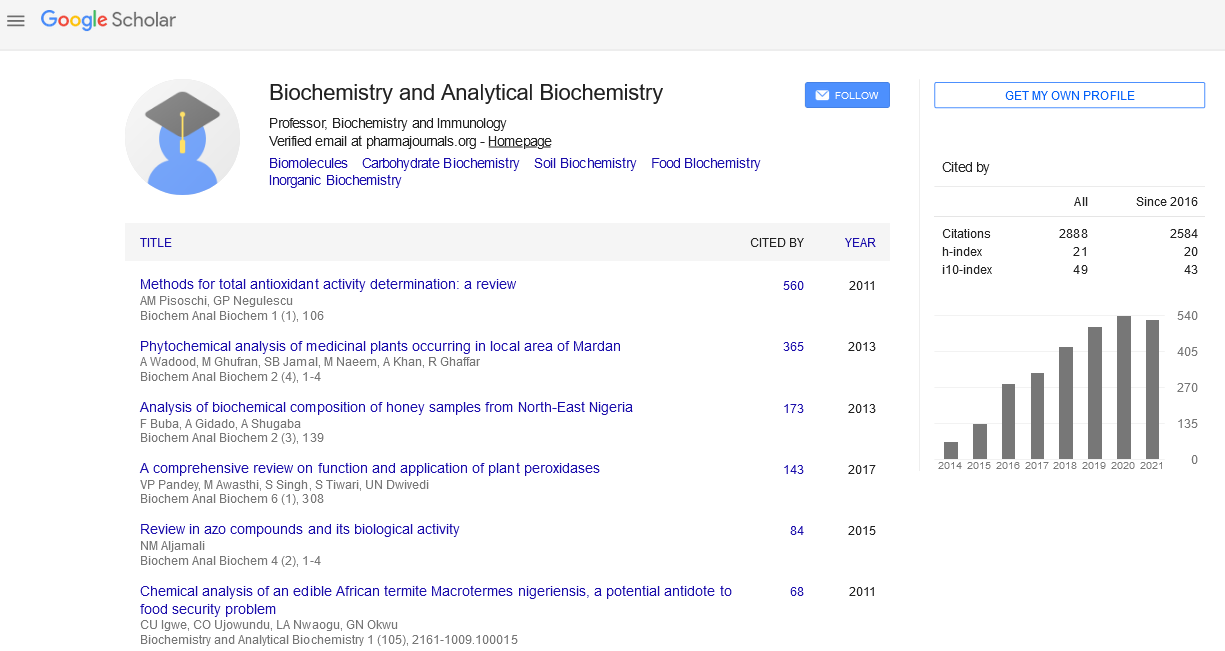Indexed In
- Open J Gate
- Genamics JournalSeek
- ResearchBible
- RefSeek
- Directory of Research Journal Indexing (DRJI)
- Hamdard University
- EBSCO A-Z
- OCLC- WorldCat
- Scholarsteer
- Publons
- MIAR
- Euro Pub
- Google Scholar
Useful Links
Share This Page
Journal Flyer

Open Access Journals
- Agri and Aquaculture
- Biochemistry
- Bioinformatics & Systems Biology
- Business & Management
- Chemistry
- Clinical Sciences
- Engineering
- Food & Nutrition
- General Science
- Genetics & Molecular Biology
- Immunology & Microbiology
- Medical Sciences
- Neuroscience & Psychology
- Nursing & Health Care
- Pharmaceutical Sciences
Unbalance between proinflammatory and anti-inflammatory proteins noted by microarray of inflammation genes in app/preseniline 1 transgenic mouse
International Conference and Exhibition on Biochemical & Molecular Engineering
October 07-08, 2013 Hilton San Antonio Airport, TX, USA
S. Valles and D. Aguirre-Rueda
Accepted Abstracts: Biochem Anal Biochem
Abstract:
Alzheimers disease is a neurodegenerative disease with plates outside of neurons and phosphorylation of TAU protein inside the cells. Research in neurons in primary culture and in transgenic mice had given a lot of information about how this illness works. The use of mice to study Alzheimer ́s disease was important in the last decade. Here using microarray to inflammatory genes, we reported in transgenic APP/Preseniline 1 changes in the balance between pro-inflammatory and anti-inflammatory proteins compared with wild type mice. Also changes in the expression of glutamate receptors comparing wild type and transgenic mice indicate that compounds in AD can trigger signal transduction pathways linked to apoptosis, such as caspases, p53, and bcl-2 genes. How proteins expressed in AD regulate and control the intracellular signal cascades, consider as relevant targets in a preventive approach, remains to be elucidated. Our results suggest that, in transgenic APP/Preseniline 1 mice an unbalance in glutamate signaling and inflammatory proteins can block the cellular signal transduction and might trigger the induction of apoptosis. Future studies, perhaps with new polyphenols or new compounds, can regulate signaling cascades to stop conversion of a normal metabolic cell to an Alzheimer metabolic one with catastrophic neurodegeneration in older people. Keywords: Alzheimer ́s disease, Inflammation, Oxidative stress, ppar-gamma, p-53.


